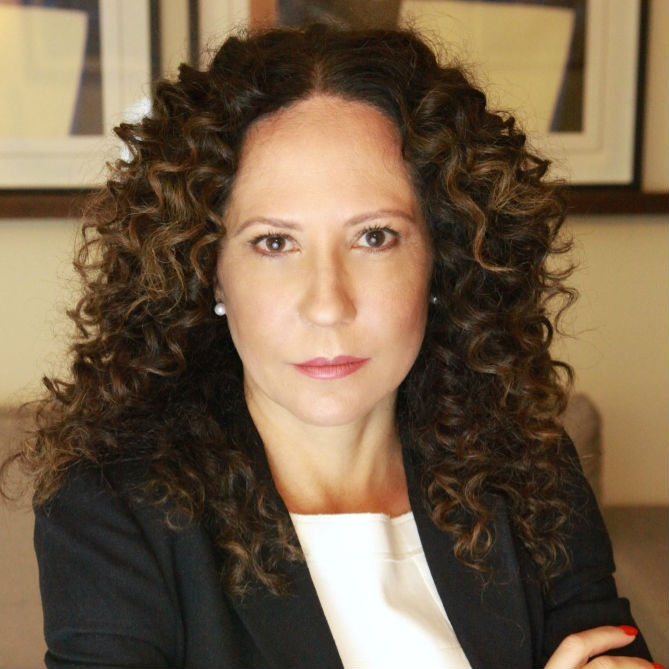
How did you come to be interested in the regulation of digital markets?
Prior to joining Levy & Salomão Advogados, I worked with the Brazilian government for nine years, four of which I served as head of the government agency in charge of antitrust enforcement and consumer protection policy. During this time, I was very lucky to participate in the early beginnings of the policy discussions on the need for enforcement in digital markets. Also, for a long time, this has been a very popular dinner conversation topic at home: my husband is in the software business and my stepdaughter is a computer engineer.
How is Brazil responding to emerging competition issues?
Over the last five years, Brazil’s antitrust authority [the Conselho Administrativo de Defesa Econômica, or CADE] listed unilateral-conduct cases, including those in digital markets, as one of its enforcement priorities.
CADE’s investigative arm recently created a dedicated unit to handle exclusively unilateral-conduct cases, which is now investigating all digital cases ongoing before the agency.
Brazil is actively seeking international cooperation in addressing digital-competition issues. Last March, CADE and European Commission officials met to discuss the regulation of digital platforms and explore opportunities for enhancing cooperation on the topic.
Despite these developments, progress in the status of digital cases has been slow. At least 46 unilateral-conduct investigations in digital markets were initiated between 1995 and April 2023, but no guilty finding has been issued so far. Delays primarily stem from resource limitations and the complexities of building cases with substantial evidence and sophisticated economic and legal analysis.
In parallel to antitrust enforcement, Brazil is considering regulatory measures for digital markets in the Brazilian Congress [Congresso Nacional do Brasil].
What are the specifics of this approach, compared with other digital-market regulations, such as the EU’s Digital Markets Act (DMA)?
CADE’s approach to cases in digital markets is not essentially different from those of other jurisdictions, which reflects the global nature of competition challenges in the digital era. The provisions of Brazil’s Competition Law are flexible enough to address emerging practices in the digital sector within the existing legal framework.
There is no ex-ante regulation in Brazil and, in fact, the Brazilian Congress is currently engaged in discussions on a proposed bill inspired by the EU DMA (Brazilian Draft Bill No. 2768/2022) to establish it. The draft raises numerous concerns, including with respect to its ambiguous terms and controversial criteria for defining gatekeepers based on their revenues. Also, as it stands, it adds little to the current Brazilian legal framework, by generically defining obligations and potential violations by players involved in digital markets.
What are the unique challenges that your jurisdiction faces in this space? How should policymakers respond?
The greatest challenge in advising clients is the lack of clear case law on the relevant standards to review transactions and on potentially anticompetitive conduct. All the cases reviewed so far provide little guidance in this respect, either because CADE did not carry out an in-depth assessment or because the cases are still ongoing.
At the same time, because of all the relevant recent developments in the area and the regulatory initiatives in other jurisdictions, policymakers have been increasingly interested in these discussions as well.
Specifically, policymakers are reviewing two key proposals.
- The Fake News Bill: It aims to establish standards, guidelines, and transparency mechanisms for social networks and messaging applications with more than 2 million registered users in Brazil. It places responsibility on application service providers (ASP) for monitoring published content and combating misinformation.
- Bill 2768/2022: Inspired by the EU DMA, it introduces ex-ante regulation and monitoring of digital platforms considered “gatekeepers.”
Another challenge that is not specific to Brazil is the strong opposition from Big Tech to the regulations and, specifically in Brazil, against the Fake News Bill. This led CADE to initiate a preliminary investigation into potential abuse of dominant position, following a complaint filed by Congress.
What do you think are the tensions and/or synergies that might arise between competition law and digital regulation?
Under Bill 2768/2022, currently under review in the House of Representatives [Câmara dos Deputados], ANATEL [Agência Nacional de Telecomunicações, the Brazilian national telecommunications agency] will be the sector regulator for digital markets, while CADE will remain responsible for merger review and the investigation of anticompetitive conduct.
This proposal, as it stands, raises some concerns, particularly because many of its terms are ambiguous and it sets forth controversial criteria, such as the definition of gatekeepers based on revenues. Arguably, it adds little to the current legal framework, as it addresses obligations and violations already covered by the antitrust law.
Additionally, it is uncertain whether ANATEL has the necessary resources and expertise to effectively regulate digital markets and protect consumers.
At this stage, there is a potential overlap with respect to antitrust enforcement in the area. The bill provides a generic disclaimer regarding CADE’s powers in relation to ANATEL’s. This ambiguity may lead to institutional tensions and challenges in practice, as it is unclear how the two agencies will cooperate and avoid duplication.
What could Europe and the United States learn from your jurisdiction’s approach, and what could your jurisdiction learn from the United States and the EU?
Brazil closely follows the experiences of the United States and European Union, which is evident in CADE’s increasing focus on unilateral conduct and digital markets, in the implementation of Brazil’s data-protection law and in the proposed Fake News Bill and the DMA-inspired bill, for instance.
Brazil can also benefit from adopting new tools and analytical criteria used by EU and U.S. antitrust authorities to improve legal certainty for market players.
Brazil’s experience in this area remains relatively limited compared to the United States and EU. The pace of regulation and antitrust enforcement has been slow, partly due to the complexity of digital cases. With that said, CADE’s best practices include its commitment to transparency, as in the publication of periodic reports on digital-markets cases, and collaboration with other jurisdictions, which are important to its development in this area.
Based on CADE’s recent activities and statements by the government, it seems Brazil is looking to pass DMA-style regulation. How likely do you think that is to happen?
Bill 2768/2022, which is inspired by the EU’s DMA, is currently under discussion by the Committee on Economic Development, Commerce, and Industry [Comissão de Desenvolvimento Econômico] within the House of Representatives. Before reaching the voting stage, the bill must undergo scrutiny by three other committees. If it receives approval in the House of Representatives, it will then proceed to the Senate [Senado Federal].
Given the early stage of review and the different stakeholders involved, the timeline for approval seems unclear at best.
In contrast, the Fake News Bill has already secured Senate approval and is pending review in the House of Representatives. Despite opposition from major tech firms, its review could gain traction again sometime in 2024.
Brazil’s antitrust enforcement agency, CADE, is one of the most experienced competition authorities in Latin America. Do you think CADE’s approach to digital-platform regulation will influence other countries in the region?
Competition authorities across Latin America are increasingly targeting enforcement against digital platforms. For instance, Argentina initiated investigations against Facebook and WhatsApp for alleged abuse of dominant position, and Chile has indicated an intention to regulate digital platforms.
Given CADE’s expertise in competition policy within Latin America and the similar challenges faced by many Latin American countries in dealing with evolving practices in the digital sector and the competitive dynamics of digital platforms, CADE can indeed serve as a resource and some of its initiatives (e.g., publication of economic studies on digital markets, the creation of a dedicated unit to investigate unilateral conducts) may be useful for other countries in the region.




